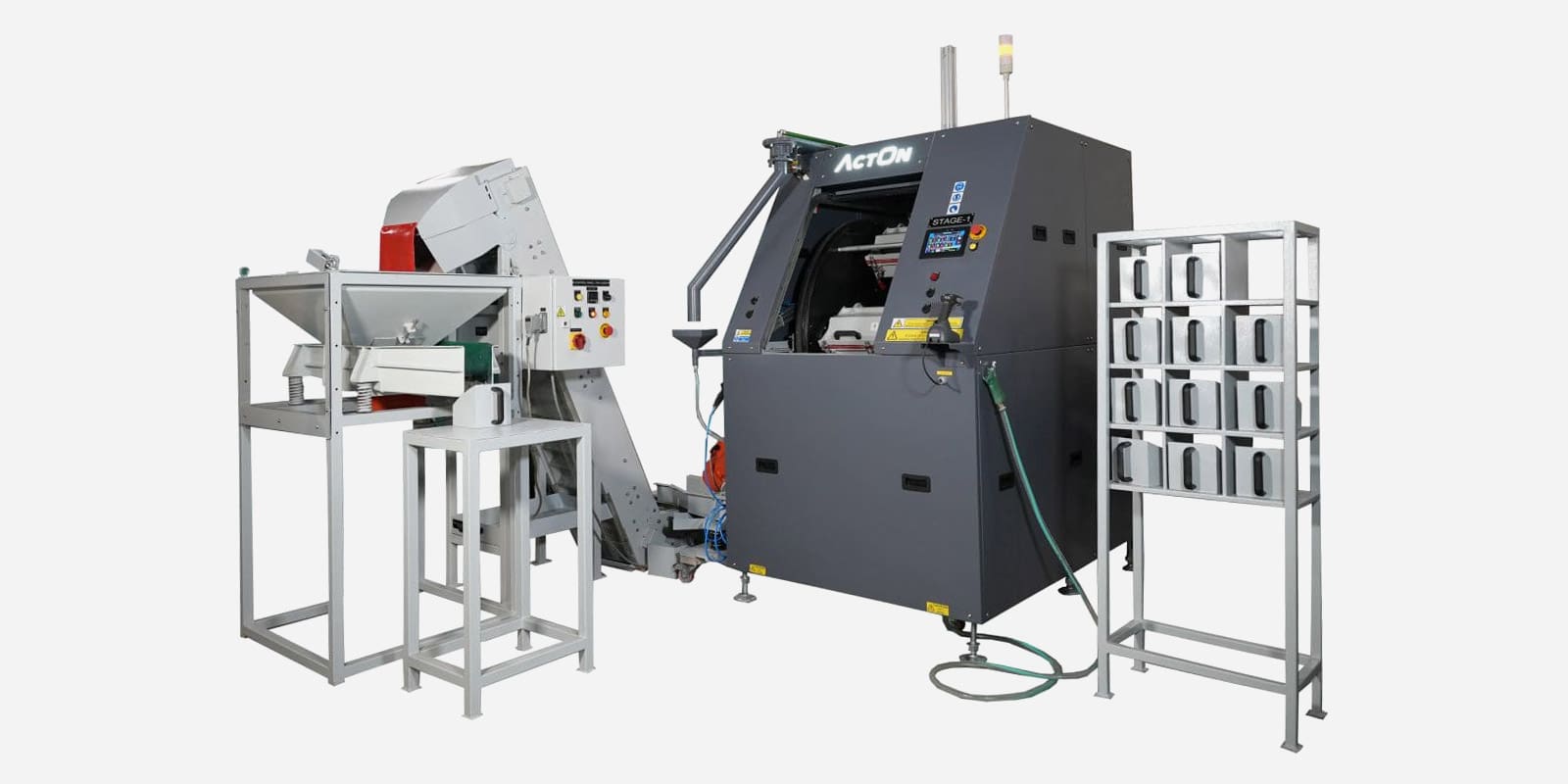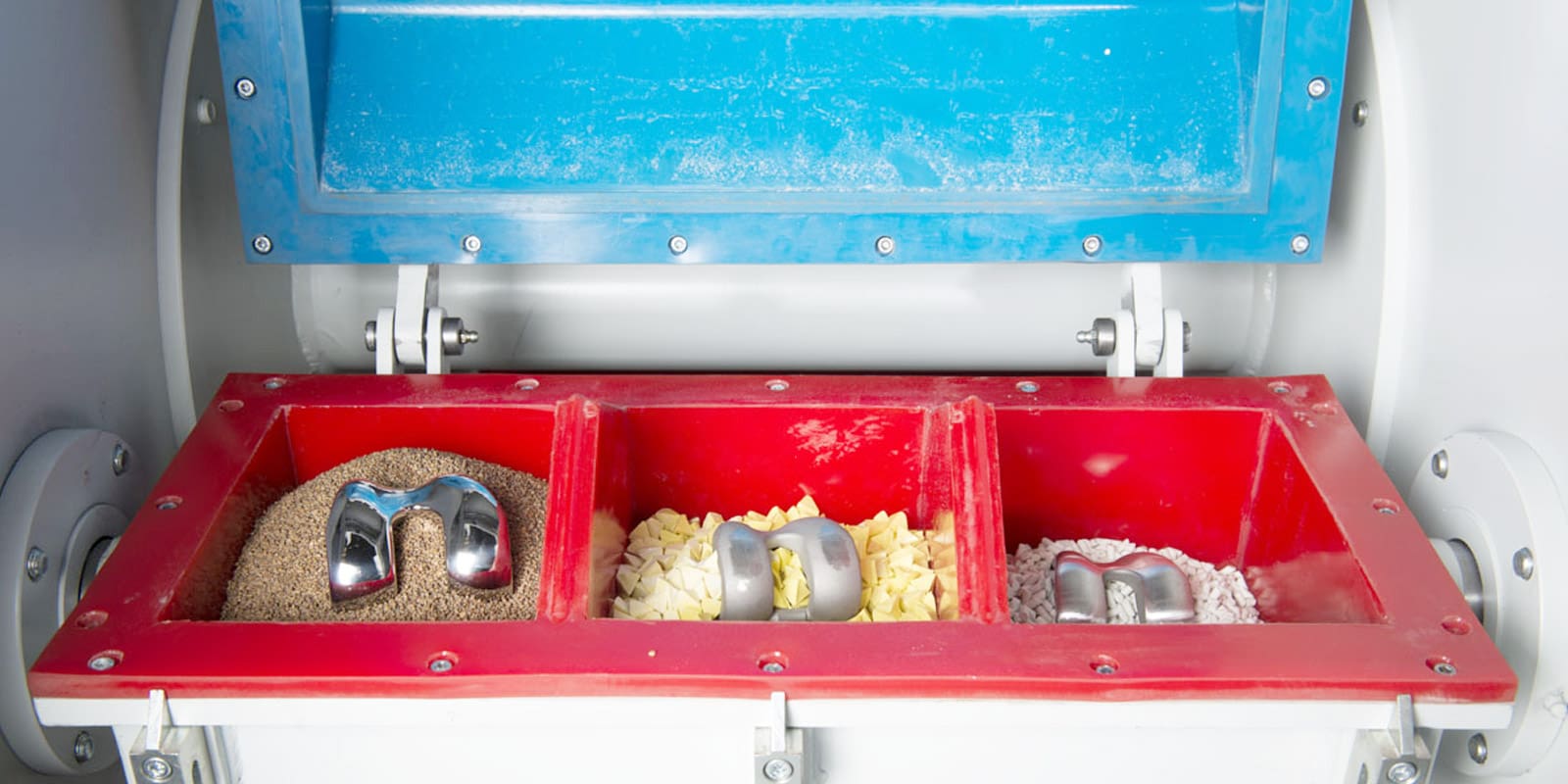We understand that in the world of medical advancements, precision and quality are essential, especially when it comes to medical implants, and their surface finish. Here at ActOn Finishing, we’ve created an innovative surface finishing solution for the medical sector, offering a game-changing approach for medical implants. Let’s explore how we’ve helped expert medical device manufacturers in the UK by providing a unique finishing process that is transforming the industry.
Why is surface finishing important for medical implants?
Because we work closely with medical device manufacturers in the UK, we appreciate the need for advanced surface finishing to ensure medical implants work correctly. The reason why this is so important include:
Attachment and comfort: The surface finishing process is critical for medical implants, including femurs, tibias, and hip implants. If the finish of these components isn’t smooth enough, they may fail to attach properly to the bone, leading to discomfort and potential complications for the patient.
Avoiding loose pieces: Rough or uneven surfaces on implants can result in loose pieces breaking off into the patient’s body, posing significant health risks.
Optimising patient mobility: Surface irregularities can cause friction in the implant, leading to limitations in a patient’s mobility and overall quality of life.
Potential for replacement: When an implant doesn’t meet the required surface finish standards, it can lead to replacements, which increases costs and causes further discomfort for the patient.

What are the challenges in surface finishing for medical implants?
All medical device manufacturers in the UK will know that medical implants are typically made from hard-wearing materials such as cobalt chrome. These materials are challenging to work with due to casting defects and machining lines, and achieving a high level of repeatability at scale is both time-consuming and costly. It also takes up a considerable amount of resources, including labour, finishing materials, and water in the filtration process.

How ActOn can help
Here at ActOn we have introduced an innovative surface finishing solution for medical implants. Our patented Centrifugal High-Energy Finishing Machine (CHEF machine) is the secret weapon behind our success with medical device manufacturers in the UK. Here’s how our CHEF machine can help:
Swift and efficient: The CHEF machine can apply up to 16g of force, allowing for results 10x’s faster than traditional methods. It removes casting defects in cobalt chrome materials quickly, eliminating the need for expensive tooling to hold parts in place.
Environmentally friendly: Our innovative process uses 70% less water than traditional methods, contributing to a more sustainable approach to medical implant production.
Complete process: Partnering with Spanish company GPA Innova and their DLyte machine, we offer a comprehensive finishing process with a mirror-like finish.
Streamlining the process: Traditional femoral implant finishing involves a 7 stage process, whereas ours reduces it to just 3; Grinding, Smoothing and Polishing. Not only saving time and resources, but also providing a superior finish.
“The process started with an enquiry to remove machining lines on a tibial implant. It normally takes the manufacturer hours to do, but our machine did the same job in 25 to 30 minutes, saving water and tooling costs,” explains Sid Gulati, who has been managing director of this family-owned business since 2015.
How it works

The traditional finishing of a femoral implant is a seven-stage process including deburring, descaling, surface smoothing and final polishing. Using the CHEF Machine and DLyte, ActOn reduces it to just three stages:
Stage 1 – grinding: Removing most of the milling and machining lines.
Stage 2 – smoothing: Blending the surface and making it very smooth to prepare for polishing.
Stage 3 – polishing: Using the DLyte machine to achieve a mirror finish.
The CHEF Machine can take 12 parts per batch; the DLyte, 24. On a repeated basis the final Roughness Average is 0.04 μm, well within the targeted Ra of 0.07 μm, from an Ra start condition of 3.133 μm.
“We’re reducing the percentage of operations and manual finishing done on the components,” says Sid Gulati. “The reduction in manual polishing means there is less use of belts and less tooling consumption.”

Our collaboration with Seco Tools
To ensure we help you become the No.1 medical device manufacturers in the UK and transform the medical implant industry, we’ve partnered with Seco Tools, acting as a bridge between our advanced finishing solutions and implant manufacturers. This collaboration improves the efficiency of our polishing process, by providing feedback to manufacturers on changes in the machining process that can reduce the need for finishing.
Key Takeaways
- Surface finishing is crucial for medical implants to ensure proper attachment, patient comfort, and mobility
- Our CHEF machine offers a faster, more efficient, and environmentally friendly solution for medical implant finishing
- The streamlined process reduces manual polishing, saves time and resources, and results in a superior finish
- Collaboration with Seco Tools enhances the efficiency of the polishing process, benefiting not only you, as medical device manufacturers in the UK, but patients
If you’d like to learn more about our unique and effective mass finishing of medical implants, contact our team at [email protected]. You can also request a Free Trial here: https://actonfinishing.co.uk/free-trial/

